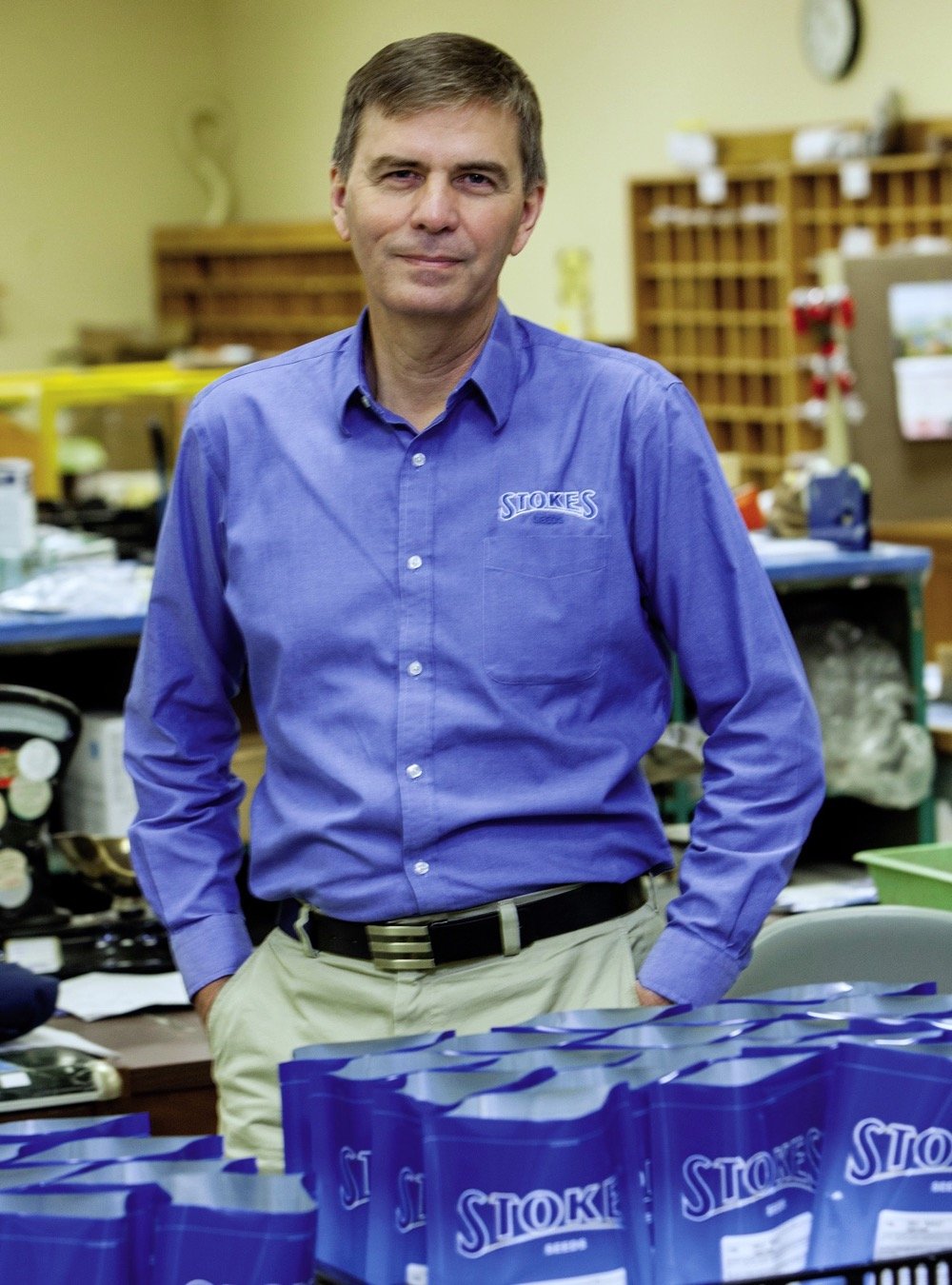Wayne Gale never forgot something he heard at a seminar 20 years ago, just after he had made the decision to enter the family business and work with his father. “When there are only two people running a business,” the speaker said, “it’s an argument.”
So what do you do when you have two smart, opinionated, A-type personalities trying to run a business together, especially when they also happen to be father and son, with all the additional dynamics that come along with that?
The Gales’ answer was to tackle the problem like two strong, opinionated, A-type personalities.
Read Also

Lessons from the past: How Canada can reverse its shrinking share of the global food market
A historic look back at how Canada has positively dealt with trade issues — and how those lessons can inform future moves.
They got Wayne into a peer advisory group, and they also formed an advisory board to not only give them impartial advice from people outside of their family-owned seed company, but to help mediate some of the disagreements that would inevitably arise between them as Wayne and his father John both worked to move the third-generation business into a new era.
They might not seem the kind of ideas that would spontaneously come up, especially for a father and son whose brainpower was already engaged pretty heavily with running the business, but in a way, the ideas weren’t theirs.
- Read more: 7 steps to better business
In this case, the ideas for advisers came through Wayne’s involvement with the Canadian Association of Family Enterprise (CAFE), a national, non-profit organization that promotes the well-being, understanding, and success of families in business.
“CAFE has three principals,” says Wayne Gale, currently president of Stokes Seeds at Thorold, Ont. “One is that you establish a board of directors or advisers, two is to be involved in a peer advisory group, and three is to create a Family Council. The organization has resources to help you with all of these.”
Gale soon found himself assigned to a peer advisory group made up of people around his own age who were all in second- or third-generation family businesses, meeting once a month. “It was like a support group, working through family and business issues,” Gale says now. “We relied on each other for advice.”
Professional, third-party advice
Then, thanks to a recommendation from one of the peer group members, Gale hired a family business consultant who helped him and his dad develop a strategic plan for the company, and establish an advisory board.
“He also helped us figure out a plan for how we both would fit into the business,” says Gale. “He went to Dad and asked him to outline 10 things he thought I should do in order to know the business. Then he asked me to outline 10 things I wanted to do in the business. He brought us the two lists and said, ‘Wayne, you work on accomplishing your dad’s list and John, you work at providing Wayne these opportunities.’”
They also set to work on that advisory board, and after interviewing six applicants, the Gales settled on three business professionals with diverse backgrounds to sit on the board, with a mandate to provide useful, third-party advice about different aspects of their company.
The advisory board met with the Gales at least three times a year and wasn’t afraid to give tough advice when it was needed. “They also had the hammer, they could walk out the door,” says Gale. “They weren’t ‘yes men’ and we definitely respected their opinion.”
The Family Council
Through its history, the family had already gone through three successions, and they quickly saw the potential value of a Family Council, which includes not only family members directly involved in the business on a day-to-day basis, but also those who aren’t involved but are in some way still reliant on it.
“The Family Council is meant to be an opportunity for the owners and people involved in the company to disseminate information to family members who are not directly involved in the company, so they have a better idea of what the future holds for them,” says Gale. “It keeps all the misinformation and lack of information out of the family tree so that everybody’s on the same page, and there isn’t a two-tier system where if you’re in the company, you know what’s going on and if you’re out of the company, you have no idea, even when your future inheritance relies on the success of the company.”
The origins of Stokes Seeds dates back to 1881, but the Gale family became involved when Wayne’s grandfather was working for the second generation of the Stokes family that founded the business selling seed to commercial horticultural growers in Canada and the United States.
When the Stokes ran into financial difficulties, they decided to cease operations in the U.S., and that’s when the Gales’ grandfather bought out the Canadian side of the business, including the inventory and rights to the name. Gale’s father, John joined in the late 1950s and by the mid-’60s they had both U.S. and Canadian corporations.
Even so, although he didn’t completely throw the idea of working in the family business out of the window (he believes in keeping as many doors open as possible), when Gale graduated from high school in the ’70s, he decided to go to the University of Waterloo to pursue his passion for computers, and after obtaining a degree in mathematics he ended up working as a computer programmer in Ottawa on contract to several government agencies, including Revenue Canada.
While he was away at university, Gale’s grandfather died and his uncle joined the business, but the relationship between the two brothers was tense, which helped make Gale’s decision to pursue his own career a little easier. “There was a lot of tension in the company at that time and they really didn’t want a third Gale involved in the business,” he says. “So I stayed clear of that.”

A few qualms
Eventually Gale’s dad bought the uncle out and told his son that he could use some help. “So I decided I would go and work for my dad,” says Gale, even though he had reservations because he’d seen first hand how the pressure of a seasonal business that requires managing a lot of employees, inter-family relationships, and different personalities could make a family-owned business environment stressful and, to put it mildly, not a lot of fun.
Gale also had no illusions about the fact that he and his dad were very different people. “When I started, Dad wore a T-shirt and jeans and I wore a three-piece suit,” recalls Gale. “I didn’t have a title or an office. I had to find my own position in the company.”
Gale was so unsure about whether he would stay, he rented rather than purchased a home. But one thing he was definite about was the fact that he wasn’t going to allow his relationship with his dad to suffer because of the business. “I told my dad when I started, I don’t want to have the same relationship that you and your dad had,” he says. “I don’t want to be screaming at you, and you screaming at me, because I will be gone. That’s not a threat, it’s just that I’m your son, and I want you as a father, I don’t need you as a boss.”
Building management structure
There was essentially no management structure in the business as it stood, so that became Gale’s first focus. “It was just my dad and a couple of ladies who were like first lieutenants, and a sales manager and that was the organizational structure,” he says. “The goal initially was for me to work in all the departments for a couple of weeks to get to know the employees and how the place worked.”
Gale only made it through three departments when he had to take over as financial controller following the unexpected death of the company’s accountant. “I got thrown into the job, but the accounting department at that point was pretty basic. We just kept books by hand, we had no computers, and had an accounting firm producing the statements,” he says.
After three months as controller, Gale decided it was time to put a more formal structure in place, so he suggested to his dad that they hire a controller, which would allow him to concentrate on designing a computer system to process orders.
It was a wise choice as it turned out because the controller they hired became so much more important to their business than they ever imagined she would. “We found a lady who was not only our controller; she became the ‘mom’ of the organization,” says Gale. “Any time my father and I had difficulties, we would go to ‘Mom’ and she would delicately try and keep the two of us on track, and acted as a bit of a buffer between us, and I think that really helped our relationship and helped smooth the succession that was taking place as I joined the business.”
Gale became president and expanded his responsibilities, taking over the order processing and customer relations, and then beginning to move into advertising and marketing. “Dad was mostly interested in the seed side because he had a natural ability to understand what we needed in our catalogue, so he took care of that,” he says. “We established our own territories naturally and we got lucky in that we didn’t end up with two people who are identical. We ended up with two people who are quite opposite, so that added to the strength of the company.”
Change not always easy
Stokes Seeds brings in flower and vegetable seeds from all over the world, and repackages them at its main office in Thorold, Ont. Close by at St. Catherine’s is the company’s research facility, which includes trials to test adaptability. It also has distribution facilities in the U.S. at Buffalo, New York and Vineland, New Jersey, that serve the U.S. northeast.
It also employs 15 sales representatives across Canada and the U.S., and during its busy season its 50 full-time employees swell to around 125 with the addition of seasonal workers.
As the business has grown it hasn’t always been easy for John to accept or understand some of the changes that the business went through. Technology was an area that was a particular hurdle for him. “When we went to our paperless, stock pick system Dad would be in my office saying we’ve only got three units of a product on the shelf and we’re going to be out of those by the end of the day,” says Gale. “He didn’t understand that we actually had 200 units but they were in a different bin location somewhere else. It took him a while to get used to that, and it’s an example of how technology changed the business in a manner that he had a difficult time coping with.”
Although he may have struggled with a few things, Gale says he credits his dad’s openness and values for the way the business has evolved and thrived.
“He’s always taught me that we are caretakers. We take care of this business for the sake of our employees and our customers, that’s our role,” he says. “Our role isn’t to use this for personal gain, or as a personal podium or for personal gratification, we’re here to work, and we’re here to make sure that our employees have a place to work and our customers have a way to get the product. That’s always been his prime directive.”
Next succession underway
The family succession from grandfather to dad wasn’t always smooth, and the last transition with Gale’s father, who is still involved in the business at 82, has caused a few bruises, but overall has been successful.
Gale is now in the process of planning for another succession that will likely involve passing the reins of the business to a non-family member. His daughter has a career in the military, and his son Peter, is already working in the company on the computer side of things, but doesn’t want to assume the role of his father.
“He’s told me he’s happy where he is so that has put me on a different plan,” says Gale. “We’ve set up a family trust and all sorts of things that go with that type of plan where there’s not a family member who’s going to be actively involved in the management of the company, but maybe involved in the ownership of the company. It will be a different type of succession than what my father had.”
Not that Gale, who is 61, plans to retire any time soon, but he is beginning to think about his replacement down the road. “I still want to be involved in the company but at some point somebody will have to take my position as the day-to-day president,” he says. “I have a head-hunter I’ve worked with before who is looking for the right person.”
At the end of the day, whether it’s a Gale at the helm or not, maintaining the family’s values and culture is important to all of them. “We are a family business, not a business family,” he says. “We’re generous and we believe in empowering individuals to be able to make decisions and making sure people who have responsibility have the authority to carry it out. Those are things we hold dear, not just in the workplace but in the family too.”
Gale believes the best manager is the one who can go golfing every Friday. “If you think about it, it’s because he’s not that critical in the operation,” he says. Not that he intends to golf every Friday, but when he’s on vacation he doesn’t expect his cellphone to ring. “I feel that I’ve got the team in place and the responsibilities identified such that they really should be able to deal with any problem that heads their way.”
A good example is his current project to make himself less essential to the company’s technology. “I’m a computer person so there’s quite a few parts of our computer system that are heavily reliant on myself and one other individual in their maintenance and upkeep, so we’re investing a considerable amount of money replacing parts of that system with systems that are maintained by large corporations so that I no longer become part of the critical path to success,” he says.
And they don’t call Gale the “Plan B” man for nothing. “I always have a Plan B,” he says. “It may not be a great plan and I sometimes am not good at articulating that plan to others, but I always have a Plan B in my pocket. I don’t want to end up in a position where the company is ever stranded.”
















